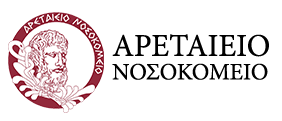Investigations
Flexible sigmoidoscopy
A flexible sigmoidoscopy is a procedure that involves the use of a long thin (thickness of your index finger) flexible tube with a small camera at the end (endoscope) to look at the inside of your large bowel. It is similar to a colonoscopy with the exception that the camera only reaches the left side of your bowel. Flexible sigmoidoscopy is used to investigate symptoms such as fresh bleeding from the back passage, symptoms around the lower part of the bowel and rectum and left sided abdominal pain. It is also used to monitor conditions such as colitis or pouchitis (inflammation of the bowel), to investigate abnormalities seen on x-rays/CT/MRI or to check the side of a previous bowel procedure or polypectomy on the left side of the bowel.

Benefits of flexible sigmoidoscopy
The benefit of flexible sigmoidoscopy is that biopsies (small pieces of tissue) can be taken if any problem is found. In addition, any polyps found can be removed during the procedure while the general condition of the lining of the bowel can be directly assessed.
Before the procedure
Prior to the procedure if you are taking any iron tablets you will need to stop them. Similarly if you are on any blood thinning medication such as warfarin or clopidogrel let your doctor know at least 7 days prior to the procedure. It is also important to let your doctor know if you have any significant health problems, have a pacemaker or any medication allergies. You will be given information on following a special diet and when to use some strong laxatives to empty your bowel 24 hours prior to your procedure. These may make you feel slightly sick but they are needed in order to ensure that the bowel is clean and your doctor can have good views of your bowel lining. Sometimes an enema administered on the day before the procedure may be enough and your doctor will inform you in relation to this.
The procedure
Flexible sigmoidoscopy is usually a procedure that does not require any painkillers or sedatives but some people may use a mixture of oxygen and a gas called nitrous oxide (Entonox). If you would like to have sedation please discuss this with your doctor. If that is the case a small tube (cannula) will be placed in one of your veins in order to give you some painkillers and a sedative to make you more relaxed and the procedure more comfortable. Lying on your side, the endoscope is passed through the back passage around the bowel after it is inflated with some gas which may give you a bloating sensation. On occasions your body position may be changed in order to negotiate the various angles of your bowel with the scope. Photographs of the bowel will be taken as well as any required biopsies while any polyps will be removed.
If any polyps are found, you will need to undergo a full colonoscopy because there is a significant chance that there may be additional polyps in the remaining large bowel. If your bowel is clean from the strong laxatives you have taken you will usually be given the option to convert the flexible sigmoidoscopy into a full colonoscopy on the day in order to avoid the need to return on a second occasion. The flexible sigmoidoscopy procedure usually lasts 15 to 30min, sometimes longer depending on any treatments required.
Recovery
After the procedure you will be taken to the recovery room. You will be given something to eat and drink prior to being discharged home. You may feel bloated for a few hours. Your doctor will inform you of any follow-up arrangements in anticipation of any results from biopsies. You should be able to return back to normal activities straight away. If you elect to have some sedation you will not be able to drive for 24 hours, you need to avoid alcohol and signing any important legal documents and need to ensure that a responsible person will be with you for at least 12 hours.
Risks of the procedure
Flexible sigmoidoscopy is generally a very safe procedure. Complications occur rarely and include the risk of bleeding (less than 1 in 1000 if no polyp is removed, 1 in 50 if a polyp is removed), perforation or tear through the bowel wall that may require surgery (less than 1 in 2500 if no polyp is removed, 1 in 500 if a polyp is removed), rare medication allergies and risk of heart attack or breathing difficulties. In less than 1 in 20 procedures the procedure may not be completed due to technical difficulties, blockage of your bowel or discomfort. Alternative investigations will then be discussed with you and arranged accordingly.
Need to contact us or book an appointment?
Disclaimer
The information relating to general and colorectal disorders and their treatments given on this website is not complete and is not intended as a substitute for a consultation with your doctor. Always seek medical advice from your doctor before making a decision about any of the conditions and/or treatments mentioned on this website.
© Dr Georgios Markides
Contact Information
You can always contact our Clinic for booking appointments and other useful information:
Dr. Georgios Markides,
Consultant General & Colorectal Surgeon
Aretaeio Hospital, 55-57 Andreas Avraamides Str., 2024 Strovolos, Nicosia, Cyprus
+357-22-020728
Hospital: +357-22-200300
Fax: +357-22-512372
How to find us

